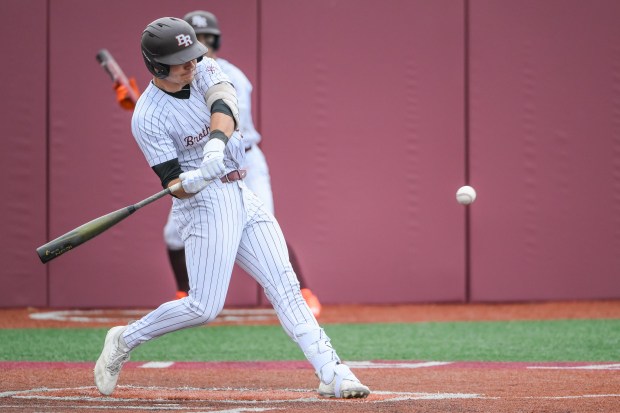Naperville’s preliminary 2025 budget earmarks $183 million for capital improvement and infrastructure projects — a 26% jump over what the city allocated this year — and calls for water and electricity rate increases in the coming new year.
Among the big-ticket items being planned is the long-anticipated completion of the North Aurora Road underpass project, which should go out to bid in early 2025, according to the preliminary capital improvement budget presented to the Naperville City Council Tuesday night.
More than $3 million is expected to be spent on planned improvements on 248th Avenue and near the city’s South 40 Lots and about $5.25 million will go to public facilities, including $3.3 million for police department renovations. Another $18.9 million is slated for technology upgrades.
Capital improvement projects — utility work, technology upgrades, road maintenance — are the single largest driver of budget growth in in recent history, City Manager Doug Krieger told the council. The city needs to replace and maintain infrastructure built between the 1980s to early 2000s, when Naperville underwent enormous population growth and expansion.
Because so much was built at once, a whole host of assets are nearing the end of their useful life simultaneously, Krieger said.
As a result, capital investment has been on the rise over the past several years. In 2019, the city allocated $62 million towards infrastructure work, budget reports show. Next year’s tentative plan calls for nearly triple that amount.
“We are on the verge of executing some projects with some huge dollars attached to them,” Krieger said.
More than half of the 2025 spending plan, about 55%, is being driven by infrastructure improvements needed by the city’s electric and water utilities.
A portion of that will go toward moving more overhead electric lines underground. About 94% of the city’s electric lines are already buried, and staff would like to do the rest over the next decade at a total cost of $55 million, Finance Director Raymond Munch said.
That price tag incited some discussion and questions among council members.
Councilman Ian Holzhauer said the 10-year investment is a “tough one” for him and asked that staff provide more information on the advantages of taking lines underground at a future meeting. Councilman Patrick Kelly made a similar request, asking for data on how underground lines fare during severe weather as opposed to their overhead counterparts.
For the city’s water utilities, ongoing work to replace old water mains and needed upgrades at Springbrook Water Reclamation Center are among key capital improvement priorities.
About $19 million is earmarked for main replacement work as the city addresses a backlog of aging water lines. Currently, they’re being replaced at a rate of about three miles a year but utility staff would like to fast track the work so the backlog doesn’t grow too large by the 2030s, when even more pipes are expected to age-out.
Financial constraints are the biggest impediment to replacing them at a faster rate, staff said.
Capital improvements are playing a factor in impending water and electricity rate increases.
Based on rate studies performed earlier this year, an electric rate hike proposed by staff would add nearly $8 a month to the average residential bill. Water and wastewater rates could go up by $9 to $13 a month in 2025.
The rate models presented are preliminary, staff said. A final recommendation to the council will be made next month.
With the first of three workshops completed Tuesday, the city’s next budget review meeting is scheduled for Oct. 22. That workshop will be focus on the operating budget.
Final approval of the 2025 budget and property tax levy is expected to be approved by the council in December.




